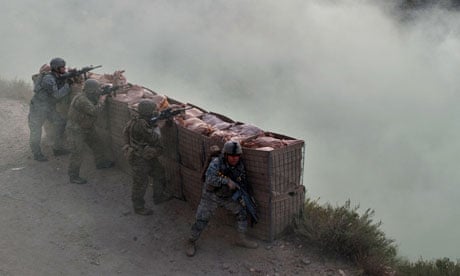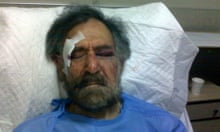A BBC journalist who died during a Taliban suicide attack may have been shot dead by US special forces, an independent investigation has found.
Ahmed Omed Khpulwak was one of more than 20 people killed in attacks on a TV station in Uruzgan province, in the south of Afghanistan, on 28 July.
The Taliban was initially blamed for the 25-year-old's death, but an investigation by the Kabul-based Afghanistan Analysts' Network (AAN) said Khpulwak may have been killed by US weaponry once the Taliban attackers were already dead.
"It seems – in what would be the worst luck of all – that Omed may have survived the suicide bombs only to be shot dead by US special forces when they entered the ruined RTA building," the ANN investigation, published on Wednesday, said.
"Evidence for this centres on the nature of his wounds, the timing of his death, ballistics and (hearsay) comments from police."
The investigation, by the AAN senior analyst Kate Clark, said it was clear that Khpulwak had died from gunshot wounds, but that "who pulled the trigger is less clear".
It said: "From the timing of Omed's death, it seems likely that both the Taliban attackers, who were initially blamed for his death, were already themselves dead, but that still leaves the counter-attacking force, as made up of Afghan and international, probably US, forces.
"The ballistics evidence points to Omed having been killed by a weapon used by the US military, although the possibility that such a weapon was used by Afghan security forces or even [the] Taliban has to be borne in mind."
The investigation concluded that the "vast majority" of people killed in the attack "died at the hands of the Taliban", but added that "one civilian may have been killed by international forces".
The report said: "This case raises questions as to whether, in an admittedly dangerous and difficult situation, 'looking Afghan' can be enough for international forces to believe there is hostile intent and an imminent threat."
The BBC said it had made an official request for the Nato-led International Security Assistance Force to carry out an urgent investigation into the facts surrounding Khpulwak's death.
A spokesman for the BBC said: "Following the death of BBC stringer Ahmed Omed Khpulwak in southern Afghanistan's Uruzgan province last month, various conflicting reports have emerged regarding the facts surrounding his death.
"The BBC officially requested that [the coalition] inquires into the circumstances of his death and reports the findings to the BBC and to his family as urgently as possible."
Khpulwak joined the BBC in May 2008 as a stringer, and also worked for the Telegraph and the Pajhwok Afghan news agency.



